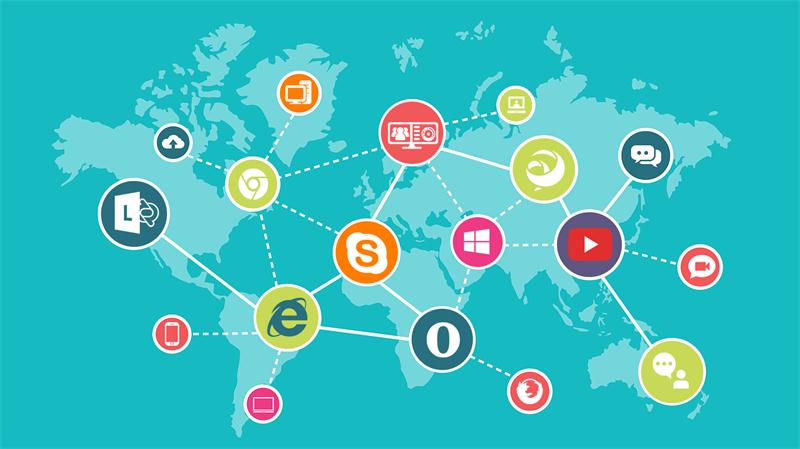What Is Unified Communications Technology?
A common question from most people is what is unified communications technology? Unified communications technology is known by other names such as information and communications technology (ICT),unified communications and collaboration (UCC) and collaborative communications.

What Is Unified Communications Technology?
The definition of unified communications technology differs from one industry expert to another. However,the term basically describes a new technological architecture that integrates communication tools so as to allow both individuals and businesses to manage all their communications in a single entity rather than separately. It functions to bridge the gap that exists between other computer related communication technologies and VoIP. This system allows companies to utilize integrated video,voice and data in just one supported product.Unified communications technology integrates communication tools to assist people in exchanging ideas as well as to effectively do their jobs. The communication tools being referred to here are instant messaging,presence technology and IP telephony. The ultimate aim of unified communication technology is to integrate the software which supports both asynchronous and synchronous communication so that the end user has an easy access to each and every tool from the computing device they are using.Technologies Used
After learning about the definition of unified communication technology,it is only fair to know about the technologies used in it. There are several technologies that characterize unified communications technology,they include the ones listed below:
IPT
IPT is an abbreviation for Internet Protocol (IP) telephony. This has become an important part of unified communication technology as many enterprises are using the internet to deliver fax,voice as well as other forms of communication. IP telephony uses the internet in delivering phone calls while VoIP is a transport mechanism which manages voice communications over IP.
IP telephony basically moves traditional phone systems from solid existence to be a component of the enterprise data network. It decreases the quantity of wiring required as well as the type of mobility that accompanies the connection of the voice system anywhere. Onto the broader area network.
Presence
This technology allows for computing devices to be located and consequently identified. This is done when the user is connected to the network and does not depend on the location of the device. Users can therefore monitor the state or availability of other users,thus adding convenience and ease to unified communications. It is ideal for enhancing productivity within an enterprise.
Presence is an important part of any company’s unified communications and collaboration strategy. It is what allows knowledge management technologies,collaboration and unified communications to collaborate so that the production of employees increases. Presence is usually featured tool rather than as a standalone. Conferencing,social networking tools,email,telephony and instant messaging have presence but as a built-in capability.
Presence can be defined as the ability to indicate a number of useful characteristics about a person to the outside world. This is inclusive of the person’s identity,what he/she is currently doing,whether they can be reached and also how best to reach them (videoconference,instant messaging,phone etc.) Presence provides all the above information but on the basis of who is requesting it. Most systems have the provision of tweaking or tuning the availability information and reachability information and this is based on the context of the person who is requesting it. Instant messaging is the most recent mechanism of presence and it includes basic indicators for a person’s availability.
Messaging
Messaging technologies comprise of instant messaging (IM),faxes,voicemail and email. This technology combines messaging services such as voicemail and fax into one mailbox that users can gain access to through phone or email.
Unified messaging allows end-users to electronically deliver voicemails to any destination. This is achieved through email delivery using a voicemail from any one of several sources such as a home number,an office phone or a cell phone.
Conferencing
Conferencing has greatly evolved from audio,web to even video. This is driven by the emergence of new technologies. Conferencing services such as ezTalks allow for increased presence and mobility for enterprises. The integration of video conferencing such as that provided by ezTalks with unified communications allows users to easily initiate video connections via presence. This integration overcomes several challenges that were experience in the past with the separate video conferencing technology such as scheduling and learning new interface. This is because it allows for video connections in a similar fashion to IM or voice connections via presence.
The process of integrating video conferencing into unified communication technology environment requires the user to first define their video conferencing requirements. There are numerous video conferencing solutions but the identification of good ones such as ezTalks that will satisfy the user’s requirements is the main challenge.
Conclusion
Unified Communication technology is an important investment for organizations which are keen on improving responsiveness and productivity while still reducing the costs of IT. This is because it converges data,video and voice around an IP-based infrastructure which is shared. This simplifies joining video or audio conferences,sending messages and making calls. What is unified communications technology? Now you know.